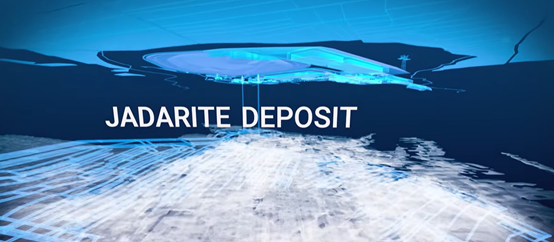Recently, Serbian President Aleksandar Vučić has re-approved the long-stalled Rio Tinto lithium project.
According to Serbian President Aleksandar Vučić, more than two years after revoking most permits, Serbia is ready to support Rio Tinto's lithium mining and processing project once again. He claims that in addition to the company's new guarantees for the Jadar investment, the EU is also about to provide commitments regarding the value chain and environmental protection.
Rio Tinto has never stopped developing the project in Serbia. Despite the Serbian government halting investment in the proposed lithium mine and processing facility in January 2022 due to massive protests by environmentalists, President Vučić has waited for the right time to open the door for the project.
In an interview with the Financial Times, he hinted that the new guarantees from the British-Australian mining giant, coupled with the expected commitments from the EU, could lead to a breakthrough in the project's approval. Vučić stated that EU leaders would provide assurances for investments in electric vehicles and battery factories.
According to the Financial Times, Vučić's demands involve "the entire value chain plus perfect environmental protection." If the expected agreement is reached, he anticipates that "business and political leaders" will officially relaunch the project in Belgrade in July. If all goes well, the mine is expected to begin operations in 2028.
Lithium will help Vučić improve relations with the West
Vučić pointed out that the Jadar factory can produce 58,000 tons of lithium per year, covering 17% of the current European electric vehicle production, or 1.1 million vehicles.
The Financial Times believes that Serbia's re-approval of Rio Tinto's project, supported by the EU in Brussels, will mean that Serbia is committed to the geopolitical stance of the West, rather than the economic and political initiatives of China, Russia, and the Arab states of the Persian Gulf.
According to the Financial Times, Western officials believe that the resumption of the agreement with Rio Tinto and the involvement of the EU is an important signal of Serbia's geopolitical alignment, while Serbia is being pursued economically and politically by China, Russia, and Gulf States.
The Financial Times reported that for over a decade, Serbia has been an EU candidate country, but the process of joining the EU has been slow due to Brussels' concerns about the rule of law and corruption in Serbia. Belgrade also has disputes with the EU over the status of its former province, Kosovo, and is one of the only two European countries that have not imposed sanctions on Russia over the Russo-Ukrainian War.
Rio Tinto is relaunching its offensive in Jadar's lithium mine investment, which is supported by the government and expected to receive official recognition from the EU.
Vučić emphasized that EU officials believed the Serbian government would give the project to "the Chinese," but Serbia vows to "deal with the EU." He claimed that some "European countries" he could not identify helped organize protests that began in 2021.
The Financial Times also mentioned that commodity research company Fastmarkets stated that Europe currently has very little domestic lithium production. The Jadar mine contains high-grade lithium, and compared to other mines around the world, the deposit is quite large. The lithium output from the Jadarite mineral in the Jadar region can meet 13% of the expected demand on the European continent by 2030.

Environmental activists vow to continue resistance
In response to Vučić's latest remarks, environmental organizations Ekološki ustanak (Ecological Uprising) and Kreni-promeni (Go-Change) vowed to continue resisting Rio Tinto's planned investment. Savo Manojlović, co-leader of the environmental organization Go Change, which led the protests at the end of 2021, said that opponents would not give up the fight if the deal is restarted. "We will organize to defend our ecological standards and constitutional rights," he said.
Rio Tinto told Reuters that the Jadar project could be a "catalyst for world-class assets" in establishing an electric vehicle value chain in Serbia.
Government officials revealed that Serbia may ban lithium exports to ensure that the material is used domestically for manufacturing high-value products.
Last Thursday (June 6th), Rio Tinto released a so-called draft environmental assessment. It includes estimates of potential impacts on water, air, and soil, and the operation of the mine will be "fully transparent."
In 2022, environmental activists submitted a petition with more than 38,000 signatures under a law on people's initiatives, calling for a ban on lithium and boron exploration and mining in Serbia, due to concerns about water pollution, displacement of residents, and destruction of the area after the mine closes. Protests blocked highways and bridges across Serbia. The Serbian government revoked Rio Tinto's license. But now the government and parliament turn a deaf ear to protests.
The EU is relying on "friendly countries" to provide a diversified range of critical minerals for the energy transition, striving to achieve the so-called "strategic autonomy." Serbia and the EU are building a strategic partnership in this field based on the EU's controversial Critical Raw Materials Act (CRMA). The two sides signed a letter of intent last September, but there was no public statement at the time.







